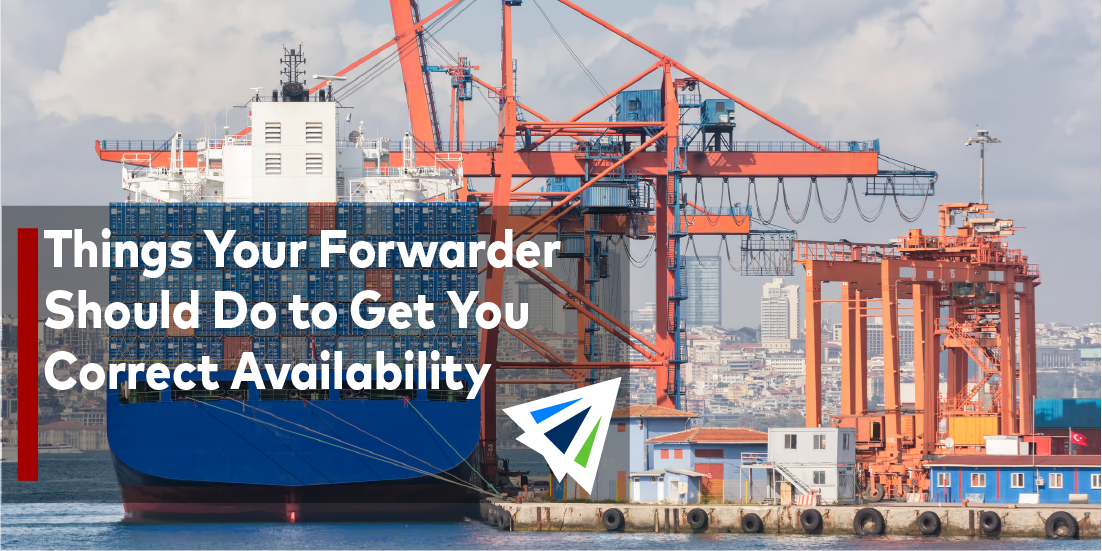There’s nothing more stressful than missing availability on a vessel. If you, your team, and your clients are relying on the seamless movement of your cargo, a missed vessel – especially an ocean vessel – is a massive headache.
That’s part of the reason shippers work with freight forwarders – you need a forwarder that you can rely on as a source of value to provide your team with accurate estimates, timelines, and bookings. If you are struggling to get access to correct/accurate container and vessel availability from your freight forwarder, or are just looking to mitigate the risk of it happening in the future, these are a few things your freight forwarder should be doing:
Communicate Thoroughly and Consistently
The biggest way that shippers lose access to available space on vessels is through miscommunication. If your freight forwarder is not 100% on top of communication with you, you’re bound to experience issues finding availability.
The thing with finding availability on vessels is that you need to plan far in advance and act on those plans immediately. While this has always been the case, it’s especially true since the back-half of 2020. Vessel capacity maxes out quickly, and the only ones finding space are those who act far in advance to their actual shipment dates. If you’re not working with a freight forwarder who is communicating frequently and thoroughly, you’re at risk to miss vessel availability.
Have Carrier Contracts
In a market like today’s, it can be tough for anyone to get availability on a vessel – let alone to get a hold of a shipping container! That’s why carrier contracts are so important.
Believe it or not, not every freight forwarder has contracts with carriers. In fact, far fewer forwarders have carrier contracts than you probably think. It’s incredibly important to work with a freight forwarder who has established contracts with a few different carriers. This will do a few things: a contract greatly increases your chance of getting access to available space, and having multiple contracts with different carriers mitigates any risk of potential hiccups with any individual steamship line or air carrier.
Be Up-to-Date on Market and Port Conditions
That’s an expectation right? Isn’t every freight forwarder is entirely aware of what’s going on at each port?
While it would be amazing if that were the truth, unfortunately it just isn’t true. And the reason often has to do with employee bandwidth and responsibilities, as well as their area of focus. Since freight forwarders act as non-asset based “brokers” in a sense, several thousand forwarders are operating with very few employees. For some of these smaller freight forwarders, most all of their time is devoted to carrying out daily tasks related to moving their clients’ cargo – not on researching market conditions or staying up to date with weather hazards, port strikes, container availability, and other factors.
Also, working with a freight forwarder who’s area of focus is entirely different than the service you’re requesting can lead to problems. Freight forwarders who specialize in air shipping may not be well-informed on ocean port conditions and vice versa. Whether you are shipping through air or ocean, contact our team to see how we can fit your specific needs.
